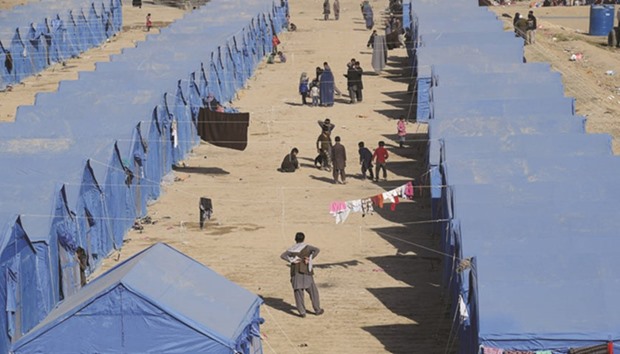A wave of internally displaced people in Afghanistan and returning refugees in need of aid may be even bigger than previously feared, UN officials warned yesterday as they called for more money and attention for the growing crisis.
Nearly 400,000 Afghan refugees have returned from Pakistan alone, according to the United Nations, forced out in many cases by pressure there.
In one week in October, more than 50,000 people crossed the border back into Afghanistan from Pakistan.
Rising violence and economic deprivation, meanwhile, have led to nearly 300,000 Afghans being displaced within the country.
In September, the United Nations and aid organisations called for an emergency infusion of $152mn.
“These numbers far exceed projections for this year – and therefore outstrip the current resources of the humanitarian community to meet the increased needs,” the United Nations said in a report last month.
Now Mark Bowden, UN humanitarian co-ordinator in Kabul, said even mid-year projections, which put the number expected to need aid at about 1mn, were “not just accurate, but may possibly be an underestimate of the scale of the problem that we are addressing”.
That conclusion was echoed by Chaloka Beyani, a UN expert on internally displaced people, who just concluded a fact-finding visit to several camps around Afghanistan.
“(The numbers) are accurate and indicate a growing crisis that is on our hands,” he told reporters.
“Humanitarian partners warn that many more internally displaced people could be displaced by the end of the year, yet attention and resources allocated to their needs seems to be decreasing.”
The Afghan government has yet to fully implement a national policy to help internally displaced people, and many state agencies “lack resources and capacity to fulfil their functions”, Beyani said.

Afghans, who were displaced by Kunduz fighting between Afghan forces and Taliban insurgents, go about their business at a makeshift camp in the outskirts of Kabul.
